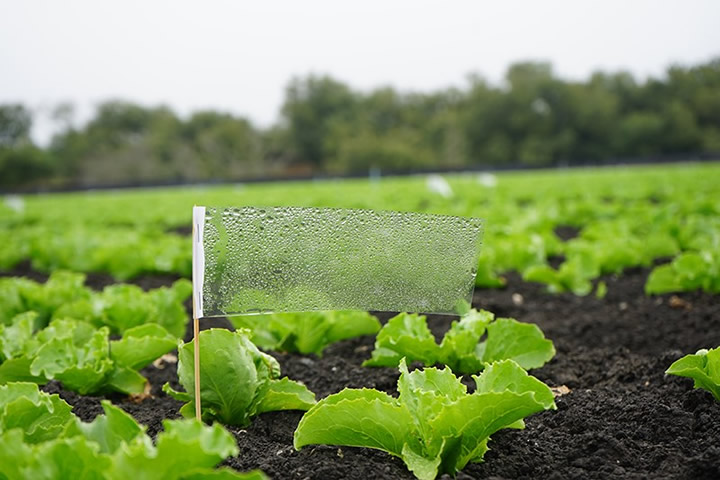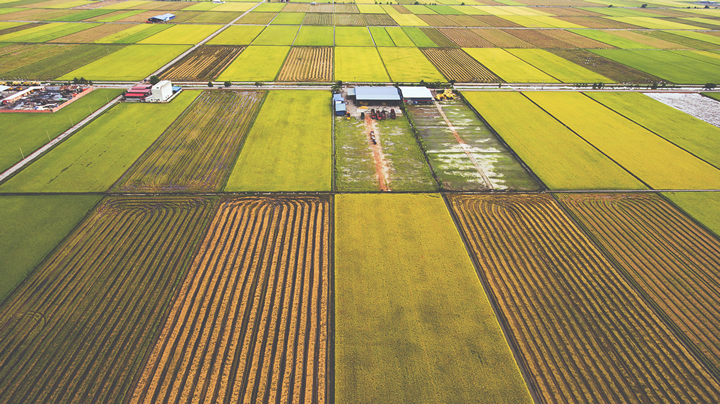Soil Testing: An Untapped Revenue Driver for Agricultural Retailers
From increasing crop yields to reducing input waste, soil testing delivers measurable results that farmers value. For retailers, it's more than just a service; it's a strategic gateway to deeper customer relationships, increased input sales, and differentiation.
Using Soil Mapping to Enhance Sustainable Agriculture and Boost Productivity
The combination of Geographic Information Systems (GIS) and satellite-based technology with remote sensing along with artificial intelligence (AI) allows precision soil mapping to deliver precise soil variability data which supports better agricultural decision-making.
The Future of Farming: Predictably Unpredictable
If you have the right balance of nutrients in your soil, plant the right crop at the right time, and get lucky with the weather, then you grow beautiful produce. But if any of those inputs go astray-well, who knows? These 7 trends could reshape the ag landscape in 2025.
Feed Your Soil and Grow Your Yields With a Balanced Diet of Nutrients
The USDA says nutrient management is inconsistent across farms in the Upper Mississippi River Basin.. Let's dig into how balancing key nutrients can boost soil health, crop yields and profits.
Going back to our roots: sustainable farming with natural minerals
As our agriculture industry faces the challenge of producing more food to feed a growing
population, the risk of soil degradation and the need for environmental sustainability become critical topics.
From Soil To Satellite: Five Ways IoT Will Impact Modern Agriculture
IoT has played a vital role in monitoring soil conditions, water usage, crop health, and even livestock management. These technologies enable real-time data collection and analysis, optimizing farming processes and increasing productivity while conserving resources.
MSU researchers develop low-cost sensors to help farmers irrigate more efficiently, manage diseases
With LOCOMOS, the in-field sensors measure soil moisture, leaf wetness and other environmental conditions. The data is then analyzed by software that generates precise irrigation recommendations and delivers them to growers via an easy-to-use smartphone app.
Paper-based biosensor offers fast, easy detection of fecal contamination on produce farms
Purdue University researchers are introducing a new biosensor technology to the agricultural industry inspired by advancements achieved during the COVID-19 pandemic. The system delivered 100% accurate results within an hour of in-field sample collection.
Plant Sap Analysis as a Driver of Regenerative a Agronomy
With plant sap analysis we use a technique we call differential testing. By measuring the old and new leaves separately, we can observe how the plant is self-regulating nutrient movement
Decreasing Soil Tillage May Reduce Carbon Release
Decreasing soil tillage can reduce carbon emissions. Reducing these greenhouse gas emissions in agriculture can help combat climate change and lead to a more sustainable agricultural system - and ultimately a more sustainable environment.
Vertical Distribution of Growing Plants Results in Less Land and Soil Used
Using a close looped water recycling system, Kalera uses an estimated 95% less water than traditional field farming. This is especially important for the western parts of the United States
How Fiber Optics Supports Agriculture
As farms across the country embrace new technology, fiber optic connections could become a crucial stepping stone to digital transformation and precision agriculture. Here's how.
AgriCapture doubles Soil Enrichment Project; Expands to over 110,000 acres of regenerative farmland
AgriCapture is expanding its growing Soil Enrichment Project to enable more farmers to receive premium payments for their climate-friendly practices. Since its launch, the project has more than doubled in size, with over 110,000 acres of regenerative farmland enrolled.
The Potential for Using Smartphones for Soil Nutrient Testing
Healthy soil functions as a living organism and is incredibly complex. Details like soil pH, moisture content and mycorrhizae levels affect how plants grow. Many farmers use soil tests to help them understand what's going on underground and supplement their crops.
What Technology is Needed to Properly Develop and Maintain Soil Health
At its best, soil is an ecosystem filled with fungi, healthy bacteria and organic matter. Healthy soil protects plants from pests, reduces weed growth and sustains healthy crops year after year.
Records 1 to 15 of 35
Featured Product

iglide® Q3E - two-component, high-load bearings for heavy-duty use
In this iglide® multi-component bearing, the outstanding tribological properties of iglide® Q3 are embedded in a high-strength jacket. The result is an even higher mechanical load capacity with simultaneously low wear, perfect for heavy-duty applications in harsh environments.


(1).jpg)
.jpg)


.jpg)





.jpg)

.jpg)
.jpg)